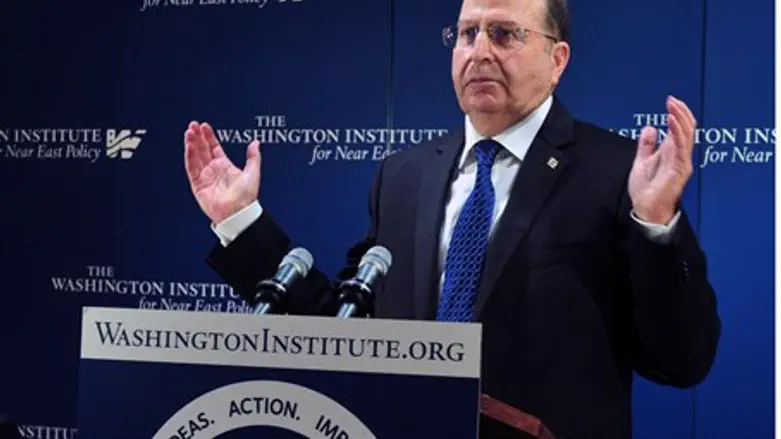
Defense Minister Moshe Yaalon said Tuesday that he sympathizes with the families whose loved ones’ killers will be released from prison in Israel’s latest “gesture” to the Palestinian Authority – but that the government has a responsibility to the ongoing diplomatic talks.
Israel is planning to release 26 imprisoned terrorists, including many who committed vicious murders.
Speaking as he toured near Gaza, Yaalon said, “As someone who fought Palestinian terrorism for his whole life, and who knows some of the prisoners who will be released personally, and knows the blood they have on their hands – it’s definitely emotionally difficult.”
However, he said, “In light of the circumstances, and the heavy decisions we faced, and the long-term strategic view – whether we like it or not, and we don’t like it, we have a responsibility as a government.”
“My heart is with the families, and I definitely sympathize with them. But we as a government have a responsibility to steer the state of Israel according to long-term strategic considerations,” he declared.
“Those who we are setting free are older prisoners who have already served most of their sentences, and who committed their crimes prior to the Oslo Accords,” he added. The odds that they will return to terrorism are low, he argued.
Yaalon made similar remarks in August prior to Israel’s release of terrorist killers. At the time, he said the decision to free terrorists was made “with a heavy heart.” Prime Minister Binyamin Netanyahu, too, has said that the decision to free imprisoned killers was emotionally difficult.
Yaalon toured the terror tunnel discovered in the Gaza region in early October, and spoke about the issue of terrorism from Gaza.
“There’s no doubt that Hamas is responsible for these tunnels, both as the ruling body in Gaza and as the one who digs these tunnels,” he declared.
He responded to concerns voiced by Israelis living in the region over the decision to remove some IDF security. “We aren’t moving to a lower level of security. There’s very serious security for these towns,” he assured them.
“Security doesn’t mean two soldiers and a guard at the entrance… To rely on soldiers who come from the homefront for two weeks to guard the gate, and that’s security – we never thought like that,” he said.
Towns which will no longer have soldiers at the gate will still be protected by various layers of security, he said, although he added, “The towns will need to fill their place, whether by taking turns to stand guard, or by hiring private security.”